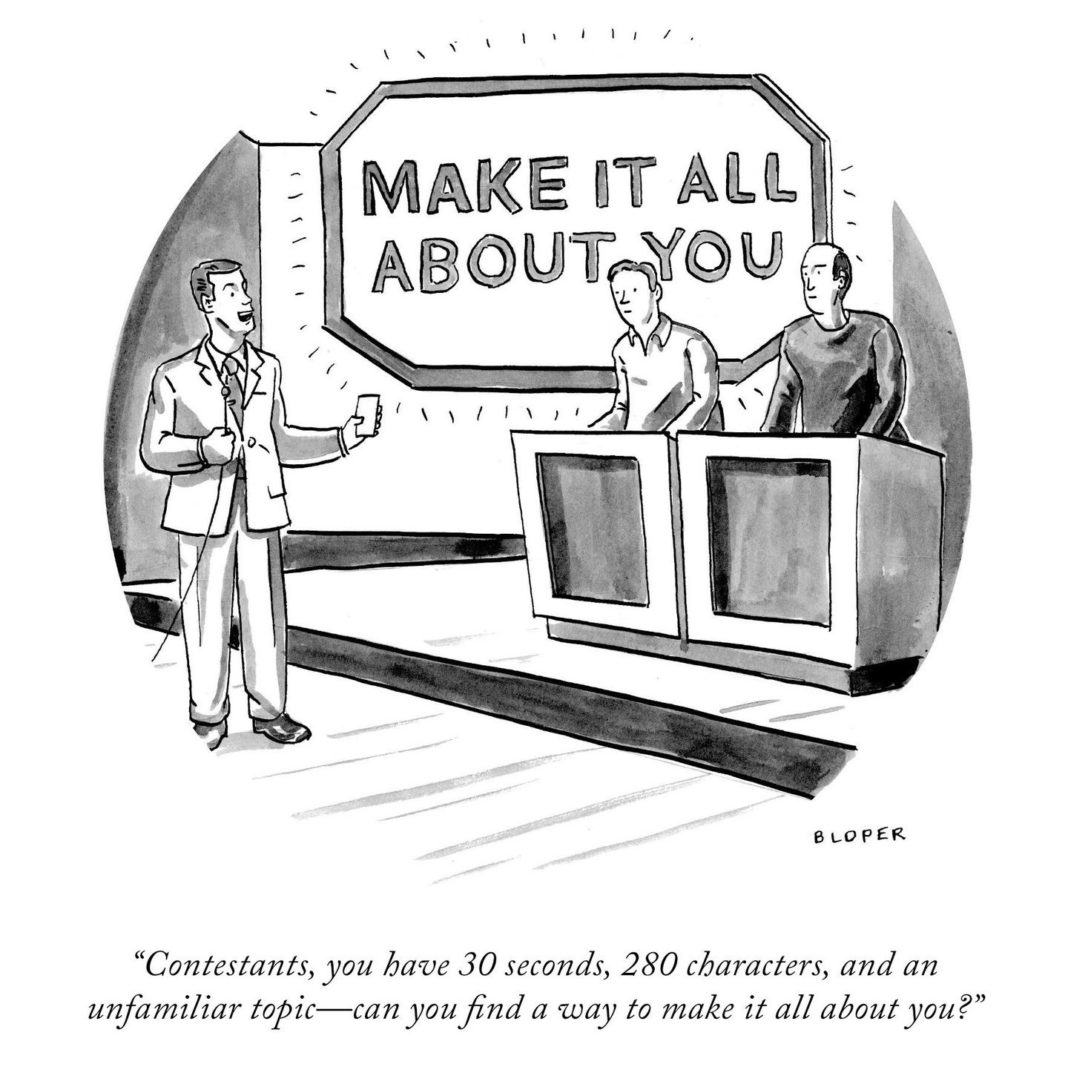When we think about narcissism, certain qualities come to mind: status seeking, admiration requiring, self-glorifying, entitled, arrogant, and a lack of concern for others. The classic chest-thumping narcissist — the grandiose narcissist — is the one we’re familiar with. Without naming names, you know exactly who I am talking about. Certain celebrities and political figures come to mind. But there’s another type that’s worth knowing about that’s harder to spot but just as entitled: the vulnerable narcissist.
Unlike grandiose narcissists who tend to be bold and outgoing, vulnerable narcissists are shy, inhibited, and deeply insecure. They are prone to feelings of shame and are forever on the lookout for subtle slights or criticism. In stark contrast to their grandiose counterparts, they shun being the center of attention. They cling to the conviction that they have suffered more than others and that nobody can help them. From friends to romantic partners to colleagues to an Uber driver, everyone lets them down.
Vulnerable narcissists swim in a sea of exasperated disappointment. “If only everyone wasn’t so incompetent” is their inner monologue. Finger pointing comes naturally to a vulnerable narcissist and they love to rehash the past and romanticize how much better things could be if only people appreciated them more. They are excellent at finding fault in others but oblivious to their own. Grievance collecting is their full time job.
Also known as closet or covert narcissists, vulnerable narcissists do not wear their narcissism on their sleeve. Grandiose types do us the courtesy of practically announcing their narcissism with their brazen behavior and shameless attention-seeking. They’re the loudest person in the room whereas vulnerable narcissists operate under the radar but are masterful at guilt-tripping and manipulation.
Nikhila Mahadevan, Lecturer in Psychology at the University of Essex explains:
“While grandiose narcissists may be stars on the interpersonal stage, triumphantly capturing the spotlight, their vulnerable counterpart may be a bit player lurking on the sidelines, resentfully seeking, but failing to obtain, the applause they crave.”
If you are dealing with a vulnerable narcissist, here are 3 sanity-preserving tips:
1. Set boundaries
Vulnerable narcissists (and narcissists in general) will take as much as you can give. Reciprocity is not in their nature. Do not make yourself available to them 24/7. Practice saying no. “I wish I could but…” and “Unfortunately, that won’t work for me” are handy phrases to keep in your back pocket. As the old saying goes, “Never make someone a priority when all you are to them is an option.”
2. Consider a two person rule
Before saying yes to the person’s request or bending over backwards to accommodate their needs, get an unbiased perspective from someone else. A second opinion from a trusted friend or a therapist provides perspective and will prevent you from feeling used or manipulated by their neediness or guilt-inducing behavior.
3. Tap into their motivation
Vulnerable narcissists seek both status and belonging. They care desperately about being recognized and included. Frame feedback in terms of what they care about the most. Instead of confronting them head on, ask questions that help them see a situation from another’s point of view such as: “How do you think that person felt when you didn’t show up?” or “How would you feel if a friend didn’t show you and you were expecting them?” Accept that accountability does not come naturally to vulnerable narcissists but such questions might help them recognize that they bear some responsibility.
If you think you know a vulnerable narcissist (or think you might be one) The Three Minute Closet Narcissism Test is always an option. It includes questions such as:
- I silently wonder why other people aren’t more appreciative of my good qualities.
- I am often secretly annoyed when people come to me for sympathy and/or help with their problems.
- I easily become wrapped up in my own interests and forget the interests or needs of others who are close to me.
On a final note, before you dismiss someone as a vulnerable narcissist, remember that humans are complex fragile creatures capable of extraordinary goodness and also selfishness and inhumanity. The tragic dimension of vulnerable narcissism is that the efforts put forth to achieve goals often have the exact opposite effect. The connection and validation they crave often go unmet and ultimately push people away. Instead of feeling anger, resentment, or hostility towards vulnerable narcissists, bear in mind the wise words of Brené Brown who reminds us to tap into the better angels of our nature:
“When I look at narcissism through the vulnerability lens, I see the shame-based fear of being ordinary. I see the fear of never feeling extraordinary enough to be noticed, to be lovable, to belong, or to cultivate a sense of purpose.”
I wish you all the best,
Dr. Samantha Boardman






